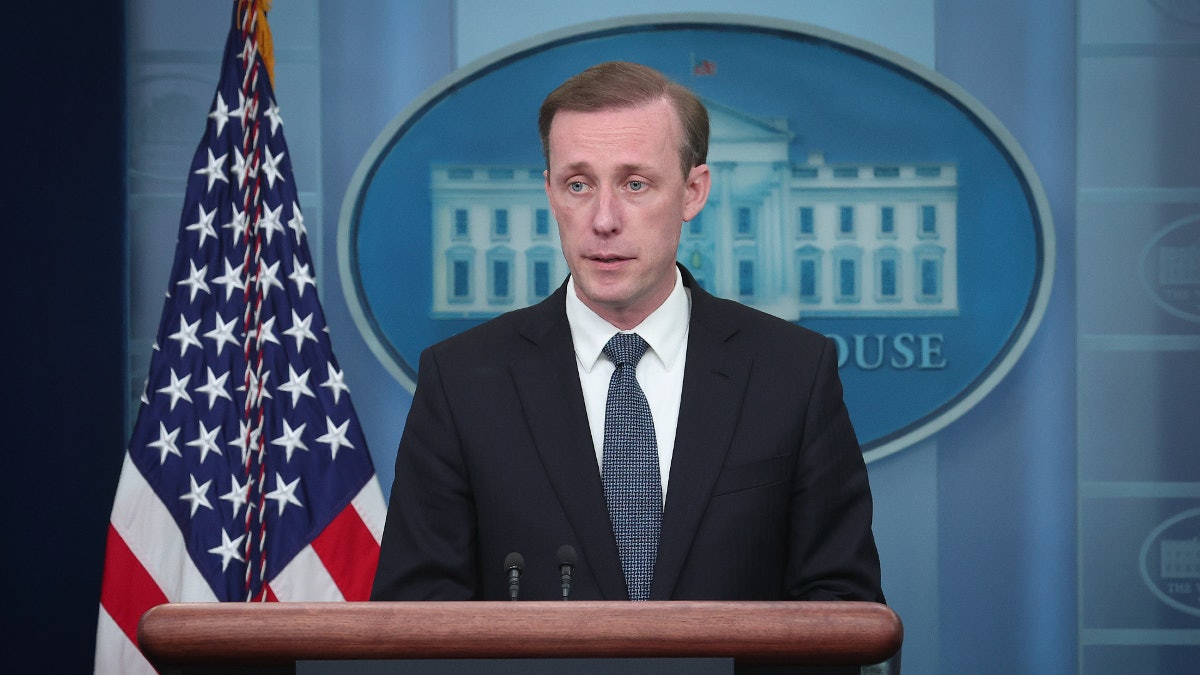The Russian-Ukrainian war continues, and the strategic confrontation between China and the United States continues to spirally escalate.
This Wednesday (12th), the Biden administration released a full version of the new US national security strategy document, which regards "defeating China" as a global priority for the United States. The 48-page report clearly states that "China is the only one Competitors with both intent and increasing ability to reshape the international order.”
National Security Adviser Jake Sullivan made it clear that competition with China is the "most important geopolitical challenge" of the United States.
Sullivan said at a press conference on October 12 that the U.S. government emphasized two priorities in its national security strategy, "great power competition" and addressing "transnational challenges" such as climate change, food shortages, infectious diseases, and terrorism. These two fundamental strategic challenges have entered a "decisive decade".
"We recognize that in the geopolitical realm, the People's Republic of China is the most important geopolitical challenge for the United States," he said. "While this will play a large part in the Indo-Pacific, it also poses a global challenge."
He also emphasized: "Russia's war against Ukraine, or its threat to use nuclear weapons, cannot divert the Biden administration's assessment that China is a more critical challenge."
Sullivan: The picture shows U.S. National Security Adviser Sullivan attending a press conference at the White House on July 11, 2022.
(AP)
In terms of how to deal with China's challenges, Sullivan said that the United States' strategy is to continue to increase domestic investment to ensure a competitive advantage, and to build the most powerful national alliance to exert American influence.
In short, the Biden administration's proposed strategy is to invest to ensure that the United States is invincible, and then to strengthen its alliance system to amplify its ability to contain China.
This is also a famous tactic in China's "Sun Tzu's Art of War": "First be invincible, and wait for the enemy to be victorious", but the United States will use unilateral advantages and allies to adopt more active offensive tactics.
It is worth noting that Sullivan's speech is still confronting China under the cliché of "democracy against authoritarianism", and he also made a strategic classification of the cooperation partners of the United States to mobilize the alliance system to contain China.
Sullivan said the U.S. would "work with any country, including geopolitical adversaries" to address challenges and "deepen and strengthen cooperation with democracies" and that the U.S. has already joined forces with Europe, Indo-Pacific countries, NATO and the Group of Seven (G7). G7) as "the core of this strategy".
On the most sensitive Taiwan issue, Biden's version of the U.S. National Security Strategy also reiterated that the U.S. will adhere to the "one China policy", "do not support" Taiwan independence, oppose any party's unilateral change of the status quo across the Taiwan Strait, peace and stability across the Taiwan Strait, etc. The United States will support Taiwan in self-defense against any force that resorts to force or coercion against Taiwan.
These are things that the U.S. government has repeatedly stated before, and it is another matter at the operational level.
On August 7, the PLA's Eastern Theater Command continued to conduct practical joint exercises in the sea and airspace around Taiwan Island as planned.
This is a fighter formation flying.
(Xinhua News Agency)
In fact, since the Trump era, the United States has gradually hollowed out the "One China", and has continuously sent interactive signals to Taiwan independence, which has become the biggest risk factor for conflicts in the Taiwan Strait.
This situation has not been alleviated when Biden came to power, but has intensified. Not long ago, the historic visit of US House of Representatives Speaker Nancy Pelosi to Taiwan has caused a serious impact on Sino-US relations and peace across the Taiwan Strait. The procedural Taiwan Policy Act is another, more dangerous bomb.
In the Biden administration's China strategy, Taiwan is not only a member of the U.S. Indo-Pacific strategy, it is at the forefront of containing China, but also the biggest bargaining chip to directly contain, suppress and blackmail China.
Only under the Chinese government's vow to oppose secession and complete national reunification with its anti-intervention will, can the Biden government achieve what it wants?
Can Biden himself see that day?
Beautiful Battlefield|The "Hong Kong version of IU" on the list of beauties in the play can only rank at the bottom of the list. Chinese analyst: Is it impossible for the "Sino-US chip war" to reconcile the major reversal of military power in the Western Pacific between China and the United States?
The United States is worried that "Taiwan's change" will become an irreversible fact. US Defense Secretary: Wei Fenghe agrees to open up communication channels between China and the United States.

